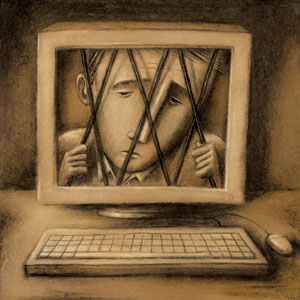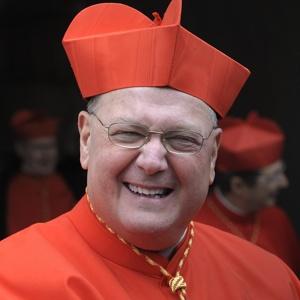“Thomas More is more important at this moment than at any moment since his death, even perhaps the great moment of his dying; but he is not quite so important as he will be in about a hundred years’ time.
“He may come to be counted the greatest Englishman, or at least the greatest historical character in English history. For he was above all things historic; he represented at once a type, a turning point and an ultimate destiny. If there had not happened to be that particular man at the particular moment, the whole of history would have been different.”
G.K. Chesterton wrote that in 1929, astutely I think. Except that 86 years later, we’re still a long way from judging More to be the greatest historical character in English history. On the contrary – and quite ironically in view of Chesterton’s reflection — the BBC’s Wolf Hall presents a distinctly unhistorical depiction of More which is comically sinister, while his adversary, Thomas Cromwell, is more or less beatified:
Some of the English bishops have weighed in, in that understated way peculiar to the English:
“One is rightly held up as a saint and one is held up as a villain in history. One is worthy of devotion and the other is worthy of learning from but not in emulating because of his ruthlessness and pursuit of power — it is hard for me to say that he (Cromwell) was driven by principles instead of by darker motives.”
However, there’s no great need to tear one’s garments. Wolf Hall is based on an historical novel — so it never pretends to be anything other than fiction. Moreover, the story is apparently told from Cromwell’s perspective, so is it any wonder that the saintly More is recast as villainous, and the villainous Cromwell is recast as saintly?
Nonetheless, I won’t be reading or watching Wolf Hall any time soon. I’ll stick with Robert Bolt’s masterly Man For All Seasons. The play and the film are both outstanding.
(This is a very good 3 minute summary of the film. I’d add only that the finale, though neat, is misleading. The court’s declaration of More’s guilt was in fact a craven abuse of the law.)





Another worthy novel that gives a catholic perspective on both of the Thomases is “The King’s Achievement”, published in 1905 by Robert Hugh Benson, a convert Catholic priest, whose father had been Archbishop of Canterbury. There are scenes in the book that seem to me to have provided dramatic background either for Bolt’s play or for the film version. (And the book is free from Kindle).
Holbein painted portraits of both the Thomas Moore and Thomas Cromwell — and in both instances a picture is worth a thousand words.
It is quite annoying how those with little knowledge of History are so willing to accept a novel over fact, especially when a series or movie is made praising the “historical novel” because “it was on telly it must be fact” attitudes. A man for all seasons was very well written and complimentary of historical fact. Another accurate depiction of St Thomas More was in the TV series “The Tudors” however what annoyed me about this series was the pornographic detail of King Henry’s affairs and the corruption of his Court. instead of implying what went on, it was acted in graphic detail as was the violence, lets just say I will not be watching it again.
St Thomas More was a man of dignity and integrity who had his priority right, and no matter how hard they try his adversary’s will never get past his dying words “The king’s good servant, but God’s first.”
Thanks Fr. John, for the heads up on this new BBC drama”wolf Hall” I think I will skip this one.
My tips for today Race2no5 Race6no4 and Race9no4 at Sandown. Then at Morphettive Race7no9 and Race8no14 at Doomben I like Race5no1 all eachway Good luck from Simon the Pieman.